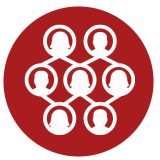During the audit process and the first steps to design a Gender Equality Plan for the institution it became obvious that there was limited knowledge regarding gender equality in the institution. Therefore, in order to promote such a GEP it was deemed essential to promote initiatives to train all staff within the institution.
Developing initiatives to raise gender awareness and capacity at all levels of the organization with provision of training to staff, teaching and research staff
Problem (evidence)
Aims/objectives
To raise awareness on gender equality among staff members.
Resources
Allocation of time for organizing, promoting and delivering events
Allocation of funding for events
Place and equipment for the events
Brief outcomes
The NIC PLOTINA team organised a series of training events for NIC employees and researchers. These events focused on: presentation of the project and results, gender sensitive language, inclusion of gender equality in research (for full descriptions of events see implementation).
Key area
The governance bodies, key actors and decision-makers
Type of action
Training/awareness-raising
Organization
Kemijski Inštitut, National Institute of Chemistry
Research institute
Action level of implementation
Researchers/professors and technical and administrative staff, students
Implementation
The NIC PLOTINA team organised a series of training events for NIC employees and researchers.
We organized: (i) a PLOTINA presentation (at the beginning of the project – approximately 25 employees attended); (ii) presentations of our work and results (after an audit, approximately 30 employees attended); (iii) a gender-sensitive language workshop (for Human Resources and Public Relations department, the Project Office and the PLOTINA team approximately 15 people); workshops on how to include gender equality into research in our organization (15 workshops, one for every department one, from 7 to 20 people attended each workshop); and an external workshop on how to include gender equality into research (LEK company, approximately 30 people attended).
In a second phase we carried out further events: (i) a round-table discussion (some plenary, some small group) on the reconciliation of work and private life in the research sector which was extremely well attended (over 50 people); (ii) a sex/gender variable in research workshop, which delved in depth into these variables in the kind of research NIC does; (iii) informal presentations of PLOTINA to NIC departments interested in the topic; (iv) carried out two surveys: one for department heads on sex/gender variable in research carried out in their department and one related to gender and climate change (to be used as a case study).
Challenges
Considering the number of researchers at NIC, there was relatively low interest, even though we stressed out that this kind of training can improve research and funding applications for European projects.
More detailed Outcomes/Impact
Raised awareness of gender equality among staff in the institution and potential culture change
Increased PLOTINA’s visibility at the institute.
Reflection: what we would do differently
Rather than focusing on all the staff in the beginning, we should have been more targeted in the first phase for example providing administration staff with training about the issues they need to deal with: bias, general gender training, sexual and/or sexist harassment, inclusive use of language, gender sensitive management, etc.
Unintended consequences
Unexpectedly, it turns out females in Grade “A” are better paid then their male colleagues. In all other grades, the opposite is true. Also, on the implementation level, PLOTINA team has been able to have a discussion with some “data providers” on the qualitative aspects of the situation, which was an added bonus.


